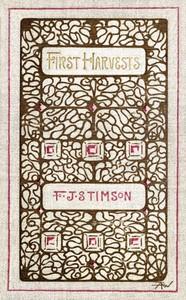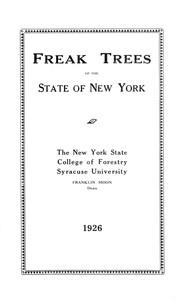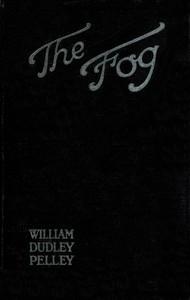|
|
Read this ebook for free! No credit card needed, absolutely nothing to pay.Words: 88525 in 27 pages
This is an ebook sharing website. You can read the uploaded ebooks for free here. No credit cards needed, nothing to pay. If you want to own a digital copy of the ebook, or want to read offline with your favorite ebook-reader, then you can choose to buy and download the ebook.

: First harvests by Stimson Frederic Jesup - American fiction 19th century@FreeBooksThu 08 Jun, 2023 ame to worst he could play three-card-monte, though he hated to resort to this, as being fairly beyond the liberal moral line he drew for himself. He never had any permanent occupation; when luck ran strong against him, he would return to the little Connecticut town, where his wife had a bit of real estate and a home with her brother, old Sam Wolcott, and there vegetate. He honestly and in good faith considered himself a gentleman; he always wore a black coat, and once came near getting a Labor nomination for Congress. But the workmen, when it came to the point, would none of him; though he did occupy a seat for a year as a Prohibitionist in the Connecticut Legislature. He was given to long disappearances; and at the time of his Australian tour it really seemed to his wife as if he were never coming back. However, he walked in home, one day, with the gold watch and chain, and quite a little sum of money; and did not finally disappear until that time in the Pennsylvania mining-town, whither he had gone to buy oil-land, having at last persuaded his wife to sell her little bit of real estate in Connecticut, against her brother Sam's advice. All this James Starbuck did not know, of course; but in a general way he did not accord much respect to his father's memory. He considered pride of ancestry a most disagreeable form of aristocracy; and whereas his father would speak of himself as a gentleman, James Starbuck boasted openly that he was nothing but a plain laboring-man. James was perfectly honest in financial affairs, and he tried to look after his twin-sister. Much of his childhood had been spent with his uncle Sam; and his earliest recollections were of that little district-school the reader may remember. For uncle Sam belonged to the salt of the earth, good old Puritan stock, and lived to be the last of it, the day he hanged himself, and the Wolcott family tomb was sealed. What was it, then, that made him hate the world? It was money, accumulation, capital, as he had learned to call the word. And he went back to the little coterie in the back room, and fervidly resumed his speech where his sister's departure had interrupted it. "I tell you," said he, "we must change it all. A man is only worth what he makes. They tell us society would be a chaos without private property; I tell them it is private property that makes a chaos of society. They talk about the law! the law! I tell them the world would be better without law. It is a bogey, invented to scare off us ignorant fellows from the plunder the rich have appropriated, just such a bogey as religion was, only religion has been exploded. It is the law's turn to go next. All property is robbery; and it is only because land-owners are the worst thieves of all, that we feel differently about other things. The earth belongs to the human race; and no man can rightly own its surface, whether he got his title from a feudal baron or a Spanish general, any more than he can own the air of heaven. But property in other things is just as bad; and Jay Gould is a worse man than the Duke of Westminster, though he has ten million acres and Gould only a few hundred. How much of his wealth represents the honest labor of himself or his forefathers?" There was a murmur of applause at this. There were some half dozen men in the room, all sober and apparently intelligent, and all natural-born Americans. "But somebody must own things," one of them remarked. "Somebody must own the mills, and the railroads, and the machinery. Why up to our works we've got a single engine that cost nigh unto eighty thousand dollars." "We can all own them," Starbuck went on earnestly, "just as we all made them. Who do you suppose made that eighty-thousand dollar machine--the banks with their money and so-called capital, or the men as put it together? A man is worth just what he makes, I tell you. Can Jay Gould make an engine? But because we've all got to have a little land, and a little plant and money, are those as have got it to take away from us ninety-nine per cent. of all we make? Yes--if we're fools enough to stand it. A man can have what he can keep and use, what he can eat and what he can wear. If he chooses to store up his day's labor, to set aside the bread and meat he earns, he can do so, and keep it till it spoils. But this dog-in-the-manger business ain't to be carried no further; and if a feller squats down on land, and don't use it, an' another feller without no land comes along and wants it, that first feller has got to get up and git--that's all. A man's a man for what he is, for what he can do--not for what he owns." "But who's going to support the Government?" "Government," said Starbuck, with a snort of disgust, to the speaker, who was something of a ward politician. "Government! We don't want no government, Bill. What's the use of a government, except to scrouge out taxes, and make wars, and support standing armies and lazy politicians?--To protect life, liberty, and property, they say; property may go to h--l for all I care; and I guess life and liberty can take care of themselves; they aren't much helped by government, anyhow. And don't you suppose we fellers can look after them? And our own schools, and our roads and things, too, each town and city for itself?" "Vote!" he interrupted, with infinite contempt. "Vote, vote again! I tell you, you're only doing yourselves harm. It ain't no sort of use. The ballot-box is just the last toy the bosses have got up, to keep you fellows quiet. Why, all this machinery keeps up the Government, and the laws, and the property, and the very things we've got to fight against. There's that patriotic bosh, and the talk about national honor, and the German wars and all--all for the benefit of the State, and the bosses, and the existing condition of things. What call has a Frenchy to go and cut a Dutchman's throat--or I an Irishman's? He's my mate, just as the next fellow is. I say, what we've got to do is, to fight; but not fight each other. We've got to fight the aristocrats, or the bosses, or the capitalists at home. I tell you these bond-holder fellows are all over the world; they're just as much in Egypt or in Mexico or in Turkey as they are here or in England. We've got to make a clean sweep, that's what we've got to do." "But what's the use of destroying things?" said a third, of a sparing turn of mind. "Well, you talk pretty fine for a young fellow," answered one of the older men; and the party got up and exchanging a rough good-night, separated. Starbuck sat a long time with his chin on his hand, pulling at the embers of his pipe. Late at night the door opened and his sister returned; he heard a short colloquy at the door, and then she entered alone, with a flush upon her handsome face. She had the rude, frank bearing and the pitiless smile which belong to the type who take life's pleasures without much regard to its pains or the pains of others; and the strong, full curve of the merry lip grows harder with age, with less of merriment and more of malice. But, withal, such a woman as no man could ever rule; and James felt it vaguely, as he sat and looked at her. "A pretty time for you to be in o' nights," said he; and the girl laughed loudly; and putting off her hat and shawl upon a chair, went to a little mirror and stood before it, touching her hair with her fingers. Now, a laugh and then silence was perhaps of all things the most exasperating to James Starbuck. Free books android app tbrJar TBR JAR Read Free books online gutenberg More posts by @FreeBooks
: Freak trees of the State of New York by Whipple Gurth Adelbert - Trees Abnormalities New York (State) Pictorial works; Photography Awards New York (State)@FreeBooksThu 08 Jun, 2023

: The fog by Pelley William Dudley - New England Fiction; Bildungsromans; Man-woman relationships Fiction; Families Fiction@FreeBooksThu 08 Jun, 2023
|
Terms of Use Stock Market News! © gutenberg.org.in2025 All Rights reserved.






